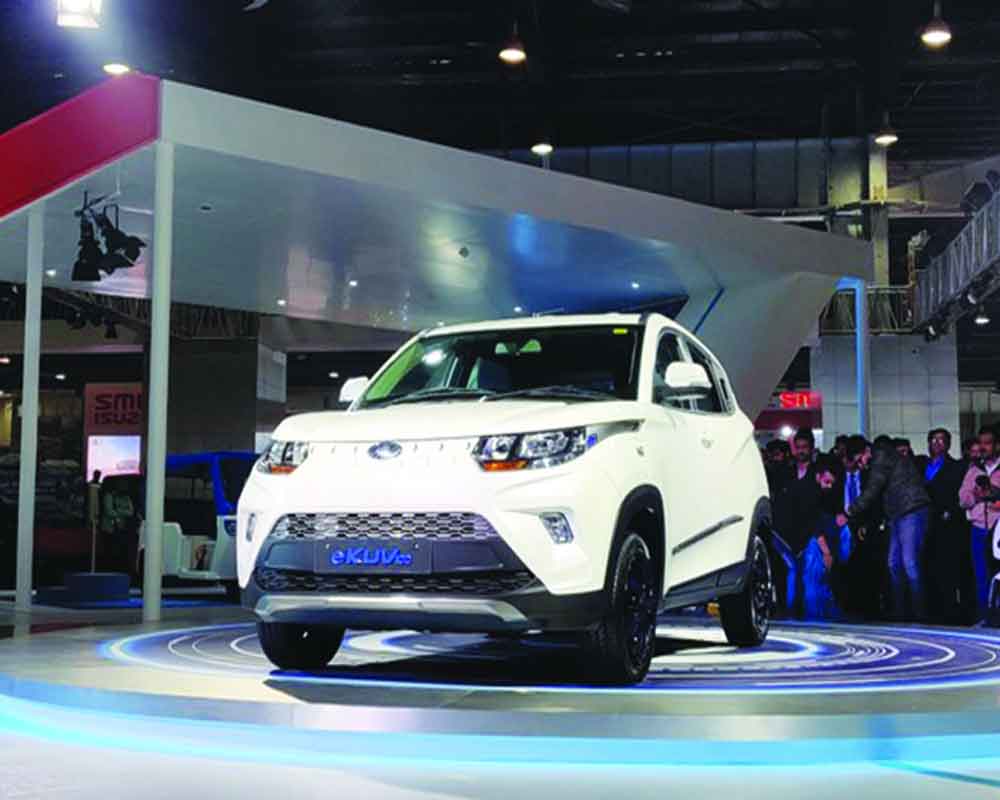The Auto Expo revealed new electric vehicle concepts but we should still be wary of a headlong rush into electrification
From Mercedes-Benz’ EQC luxury electric car to the micro-urban electric runabouts shown by Chinese manufacturers, Tata and Mahindra’s latest electric offerings alongside future concepts as well as those from Maruti-Suzuki and Hyundai and tens of start-ups showcasing Chinese-made electric two-wheelers, one can clearly say that the 2020 Auto Expo held over this past weekend was “electrifying.” But even Bollywood icon Shah Rukh Khan, who attended, highlighted that there are certain problems with electric cars that need to be solved and rightly pointed out that battery disposal is a problem if there is large-scale electric adoption. There are other problems too. India has little or no charging infrastructure and will need to dramatically enhance not just the front-end charging aspect of the electric car but also the back-end of the electrical grid as well as accelerate the shift from inefficient thermal plants to renewable sources. But this ignores the biggest elephant in the room, that India does not have the manufacturing skills and supplier base currently to make the overnight shift to electric cars and motorcycles. Almost all the electric cars and two-wheelers on display at the Auto Expo were more Chinese than Indian and given the current jobs crisis, the Government has to be very measured about how quickly it forces the industry to change. The automotive sector today provides millions of jobs and companies like Bajaj Auto, Royal Enfield as well as Maruti-Suzuki and Hyundai are “Make in India” success stories. On top of everything, electric cars are still far too expensive. The premium for an electric car, even while considering its ridiculously low operating costs, is not something you can make up over the eight years that the battery is guaranteed for by most manufacturers.
Make no mistake, electric vehicles (EVs) are a sign of the future and it is a shift that every motorist, no matter how much of a petrolhead he/she is, will have to make. These vehicles emit no direct pollution and with improvements in battery technology, they are very handy daily commutes. However, they are expensive and while battery power might make sense on less complex two and three-wheel vehicles, on cars, batteries take up almost two-thirds of the cost. Chairman Emeritus of Tata Group Ratan Tata rightly pointed out on his Instagram on the eve of the Auto Expo that hybrids should also be part of the solution. From a cost perspective for end consumers, these make the most sense — smaller battery packs, no range anxiety as one still has the petrol engine, better fuel economy and a pleasant driving performance kick as well. Several new supercars are all hybrids. Maruti-Suzuki has a hybrid version of its Swift hatchback on display as well. It might have looked the same but it was offering 50-60 per cent higher fuel economy than the standard petrol variant for about a lakh rupees more, a cost you could make up in about three years of ownership, which should be a win-win in the short run. India has to think of less polluting automotive solutions but it must not lose sight of the fact that despite our aspirations, most Indians are not rich and may not be able to buy into the electric dream just yet. Costs are something that our policy makers have to keep in mind and not close the door to more affordable options.


























